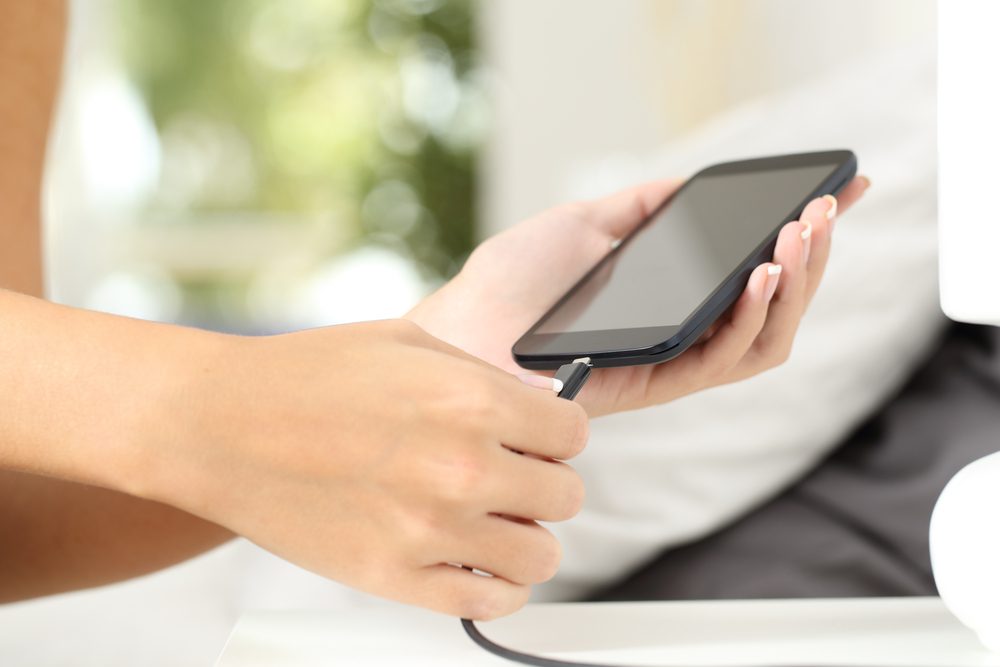
Is it dangerous to leave my phone plugged in while I sleep? Is it safe to use public charging ports? Some say it’s ok, others claim it’s a big no-no. To simplify matters and debunk some of the myths surrounding phone batteries, we’ve asked tech experts for their opinions. Here’s what they said about the most popular phone battery myths.
Myth: I shouldn’t charge my phone overnight
Fact: Even if you leave your phone plugged during the night, if the battery is full, your phone will not continue to charge. In case the battery level drops due to various reasons while your phone is still plugged, it will recharge, says Sergio Flores, an electronics engineer for Samsung. “This way, even if you are charging your phone overnight, the phone is only being charged when it is necessary,” he explains.
Myth: It’s ok to leave my phone on efficiency mode
Fact: The low-power mode has been created for a reason. Your phone’s software won’t be affected if you leave your phone on low-power mode, but it might affect the user experience.
“Phones are designed to be really flashy and give you an over-the-top experience,” says Brad Nichols, a technician with technology repair service company Staymobile. “When you turn them into that efficiency mode, it gets rid of all the redundant things.” This means lower brightness, lower sound and fewer app notifications at larger intervals of time.
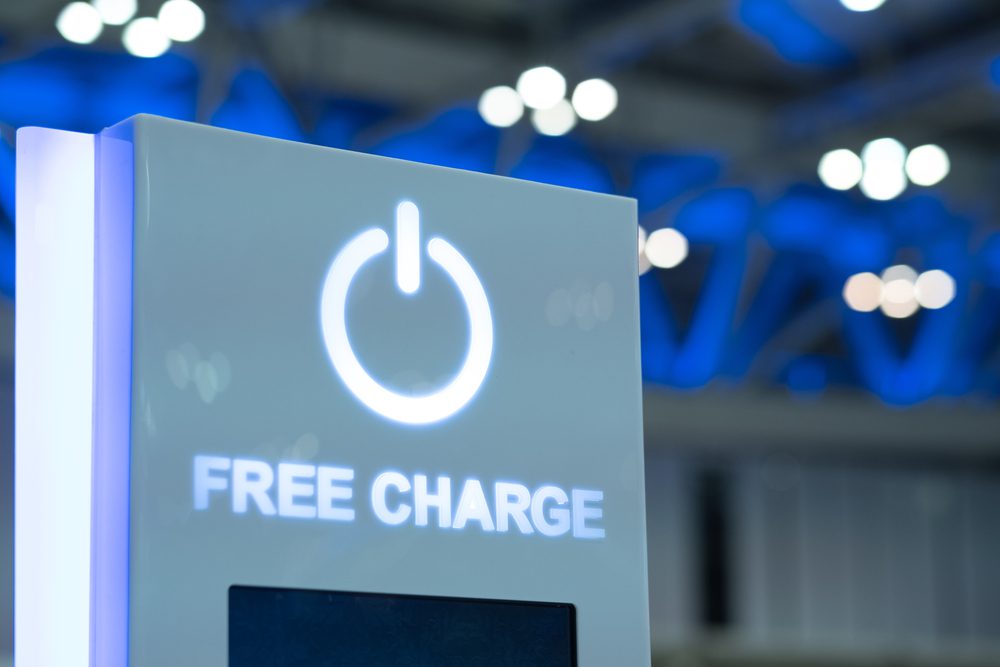
Myth: It’s safe to use a public charging port
Fact: It’s not the software of your phone that might be affected if you use a public charging port, it’s your personal information stored on that phone. That’s because the chords in restaurants, airports and other public places open up your phone to hackers. “People don’t realize they’re not just a power source,” warns Eva Velasquez, CEO and president of Identity Theft Resource Center. “It’s not like plugging your lamp into the wall.”
Those devices can provide unauthorized access to your emails, texts, photos, and other personal data. If you really need to charge your phone, use a portable charger, recommends Velasquez.
Myth: My new phone needs to be fully charged before I use it
Fact: Your new phone is not completely empty, meaning it doesn’t need to be fully charged before you use it for the first time. In most cases, manufacturers recommend charging the new phone to make sure the phone produces a good impression. After all, it would not look good if you expect the phone to last eight hours and it lasts only four.
“If you expect an eight-hour battery and it lasted four hours, that’s not the experience the manufacturer wants you to have,” says Nichols. “Most of the time these recommendations are to make users feel like they are getting the quality of the device they were promised.”
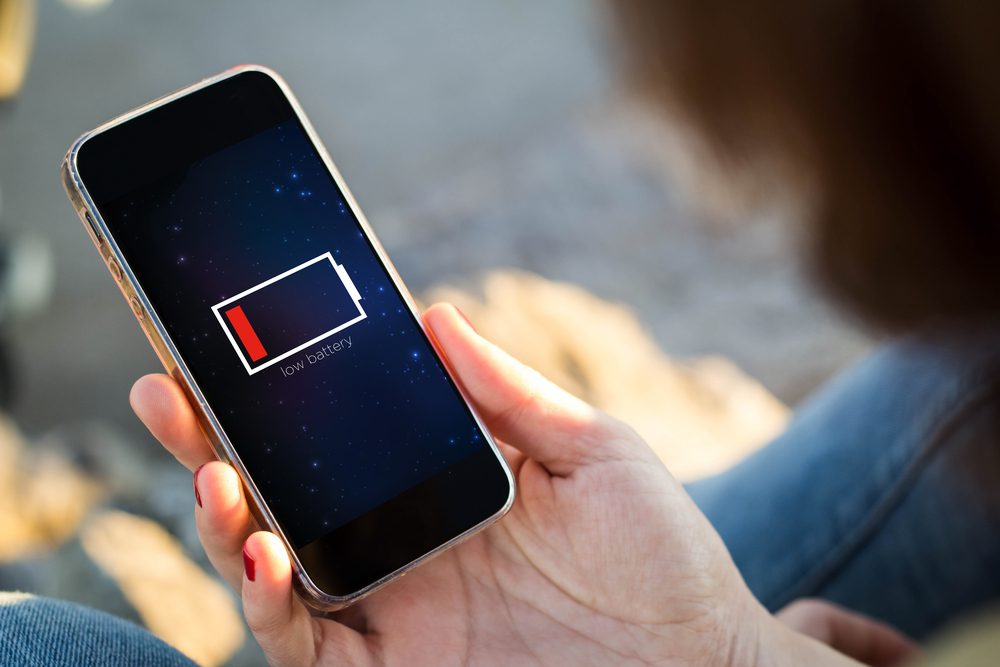
Myth: I shouldn’t charge my phone until it dies
Fact: It is recommended to charge your phone before its battery reaches zero. That’s because “these kinds of batteries tend to ‘forget’ what their full capacity level is, and so when recharged, they do not recharge to the same level as they were at the beginning,” says Flores. The latest smartphones no longer have this problem, but older versions might still need to be juiced up before they die on you.
Myth: One app doesn’t consume too much energy
Fact: If you believe this, you might want to reconsider. That’s because one single app, let’s say Facebook, can drain your phone’s battery in no time. You don’t even have to keep it open; it just stays in the background, using its power-hungry features.
“A lot of [apps], like the Facebook app, do things in the background, even when you’re not running it,” says Nichols. It is continuously searching for messages, updates and refreshing your feed. If you delete your Facebook app you would save 20 percent of your device’s battery lives and allow other apps to run 15 percent faster. If you can’t live without Facebook or similar power-hungry apps, use a web browser on your phone, suggests Nichols.
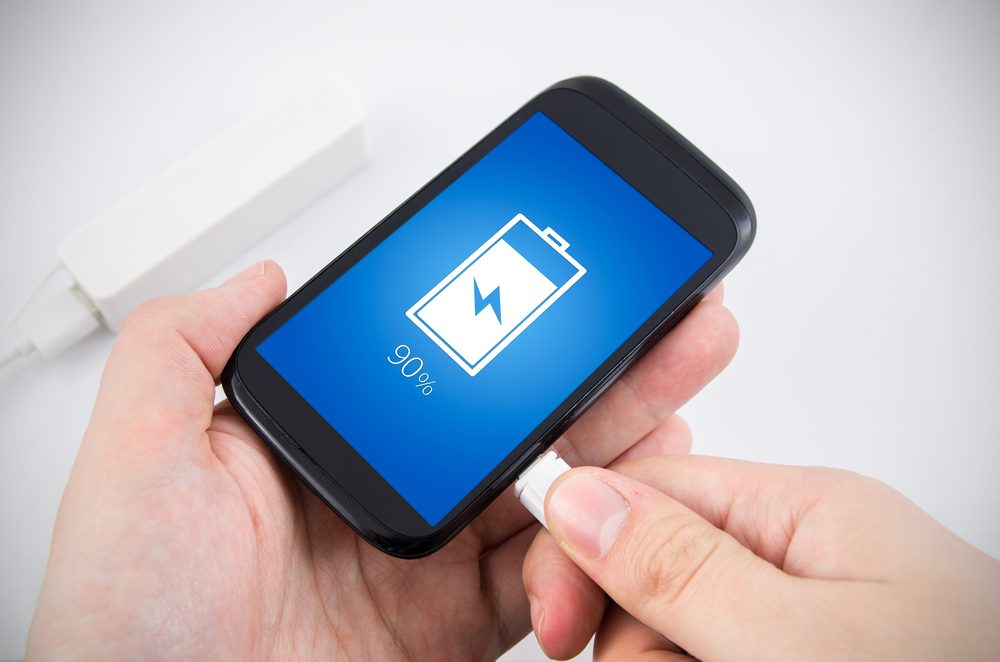
Myth: I shouldn’t touch my phone while it’s charging
Fact: There’s nothing wrong with using your phone while it’s plugged in. “Although when you are charging your phone, the power is different from the one you normally use (the battery), the results and performance of the circuitry are always the same,” says Flores. The only problem is that open apps consume power while the phone is charging, which means it might take longer to fully charge, says Nichols. Therefore, if you want to charge your phone quickly, you should stop fiddling with it.
Myth: There’s no point in turning my phone off
Fact: Yes, there is. Resetting your phone could prevent battery-draining applications from shortening your phone’s battery life. Most apps don’t fully close when you’re no longer using them and continue to run in the background. If you want to make sure you get rid of those energy-suckers, turn your phone off at least once a week. In fact, I think I’m going to turn it off right now!
“Restarting your phone takes two minutes, and you can usually tell the difference,” says Nichols. “If you turn your phone off completely, it’s processing zero tasks as opposed to 20 tasks every 10 minutes.”
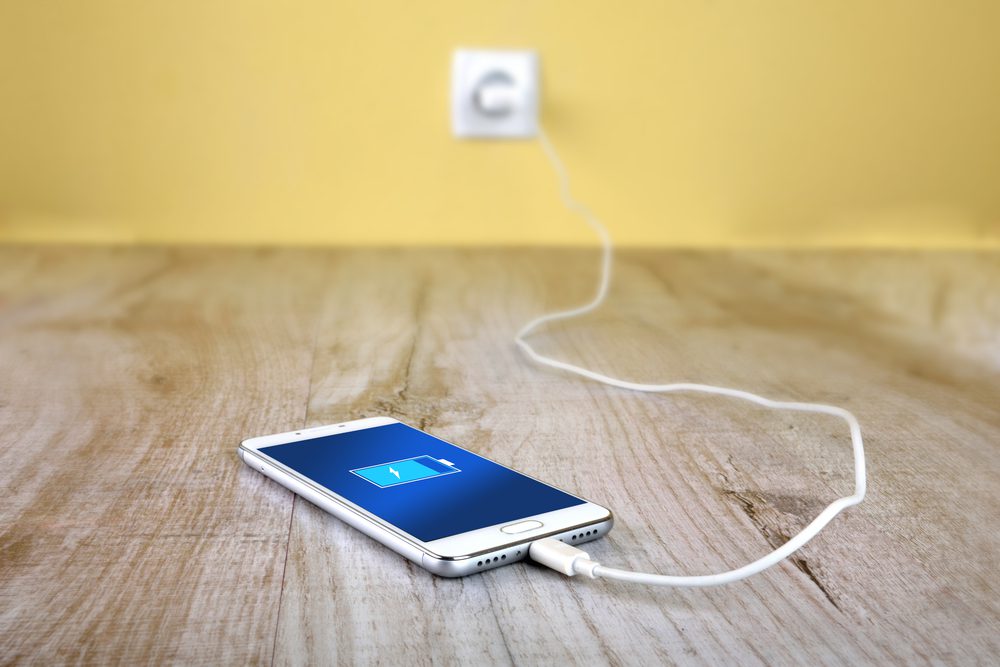
Myth: I will save money if I buy a no-name charger
Fact: You just think you’ll save money but in reality, you’re only gonna end up paying more. That’s because cheaper chargers cannot protect your phone against surges, which could eventually fry the insides of your phone.
“Cheaper chargers don’t necessarily have the standards in place to fill your phone constantly with the correct voltage,” says Nichols. “The fluctuation of voltage can damage the charger port, and even damage your battery.” In other words, unless you want to take your phone for repairs, or worse, buy a new one sooner than expected, stick to manufacturer-certified products.
Myth: Hitting “eject” is useless
Fact: It is not. There’s a reason you are instructed to hit “eject” whenever you take out other devices from your computer. What’s the reason, you ask? Well, the files you have on your phone might get damaged and lost.
“If you were before transferring pictures or data, unplugging it may disrupt that connection too soon,” says Nichols. Unless you want to end up with corrupted files, it’s safer to plug your phone into the wall, where you can unplug it whenever you want.
Myth: Searching for Wi-Fi is draining my battery
Fact: It’s true that searching for Wi-Fi can take up some energy, but that’s hardly enough to kill your phone’s battery. “You’re talking about very low tasks,” such as searching for signals and sending signals says Nichols. “They’re not taking up much battery at all.”























1 thought on “11 Most Common Phone Myths You Should Stop Believing”
Thank you for that valuable info. I will keep those points in mind 👍